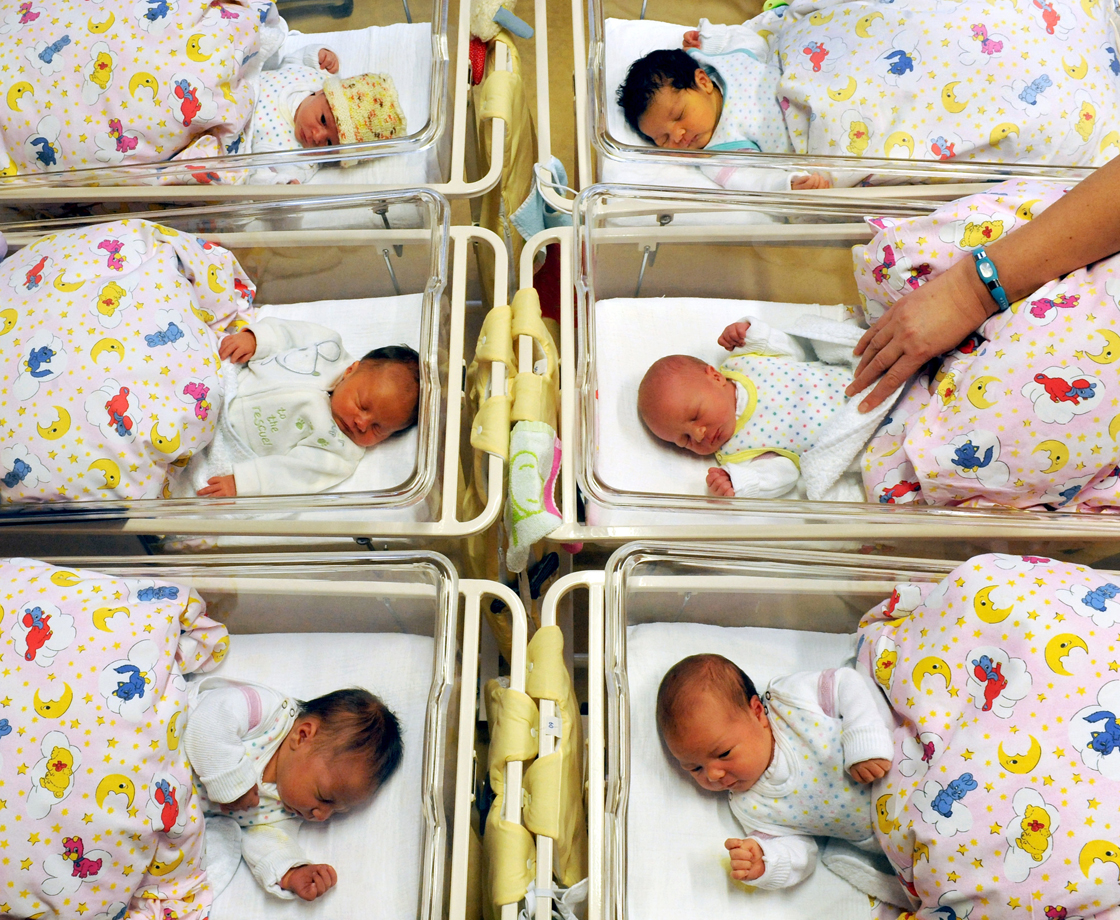They’re about 50 centimetres or 20 inches. Whether you’re in China, India, Italy, Kenya, Brazil, the U.S. or the U.K., healthy babies around the world are born at around the same size.

It’s a striking new finding out of a landmark global study, but it only applies to babies born to healthy, well-educated and well-nourished moms.
In the past, scientists had suggested that race and ethnicity were responsible for differences in baby size. This new research out of Oxford University is now pointing to controllable factors such as education level, health and nutrition in mothers.
“Currently, we are not all equal at birth. But we can be. We can create a similar start for all by making sure mothers are well educated and nourished, by treating infection and by providing adequate antenatal care,” said lead researcher Dr. Jose Villar in a university statement.
“Don’t tell us nothing can be done. Don’t say that women in some parts of the world have small children because they are predestined to do so. It’s simply not true,” Villar said.
READ MORE: Newborn baby’s smell is as addictive as drugs or food, study suggests
His research is based on studying nearly 60,000 pregnancies in eight urban areas of the world — Brazil, China, India, Italy, Kenya, Oman, the U.K. and USA.
In the tens of thousands of pregnancies, ultrasound scans were taken from early gestation to delivery to measure babies’ bone growth in the womb. At birth, babies’ length and head circumference were also measured.
Turns out, it was educated, healthy and well-fed moms that give birth to babies within the global similar size.
Keep in mind, smaller babies who go onto being undernourished could deal with severe short and long-term health problems. In adulthood, small sized babies deal with higher risks of diabetes, high blood pressure and heart disease.
READ MORE: 5 made-in-Canada ideas helping women and babies around the world
Some factors are at play in explaining why some women have smaller babies: poor nutrition, infections, complications during pregnancy, smoking, drinking or having to do physically-demanding work while pregnant.
In 2010 alone, an estimated 32.4 million babies were born already undernourished in low- and middle-income countries. That’s 27 per cent of all live births globally.
(In Canada, and others parts of the Western world, overnutrition is also becoming a growing problem — more and more expectant moms develop gestational diabetes. Meanwhile, overweight babies are at a higher risk of become obese along with a string of other health issues as they get older.)
READ MORE: How motherhood changes a woman’s brain
Ultimately, the researchers say they hope international standards could be adopted worldwide to prop up maternal and newborn health.
“The fact that when mothers are in good health, babies grow in the womb in very similar ways the world over is a tremendously positive message of hope for all women and their families. But there is a challenge as well,” Dr. Zulfigar Bhutta said. He’s a Canadian doctor with the Hospital for Sick Children who chaired the steering committee in the global study.
READ MORE: Toronto hospital launching landmark study following pregnant women and their babies
“This is about the health and life chances of future citizens everywhere on the planet. All those who are responsible for health care will have to think about providing the best possible maternal and child health,” Bhutta said.
The study was funded by the Bill & Melinda Gates Foundation, released Sunday night and is slated to be published in The Lancet.
Some 60,000 women were recruited, 300 health professionals across eight countries carried out the information gathering and another 200 researchers combed through the findings.
carmen.chai@globalnews.ca
Follow @Carmen_Chai




Comments